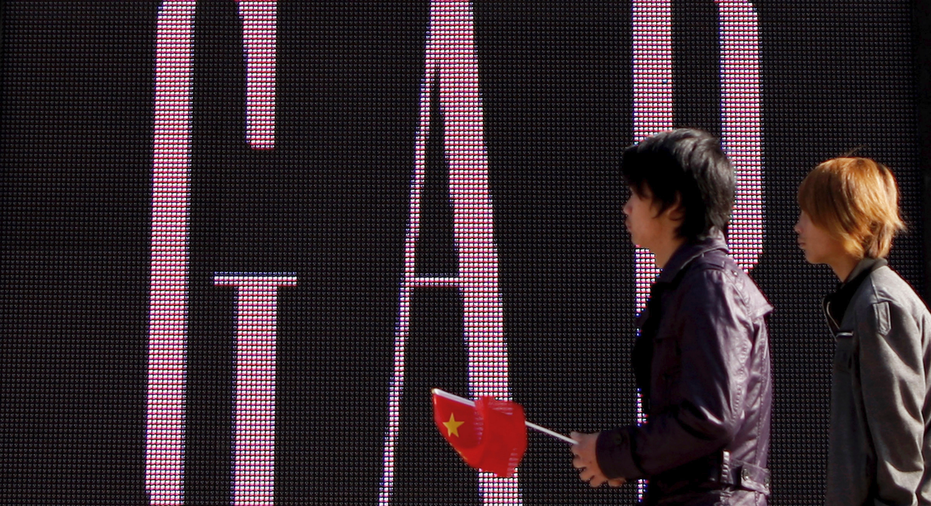Gap apologizes for China map T-shirt that didn't show Taiwan

HONG KONG – The U.S. clothing retailer Gap apologized Tuesday for selling T-shirts with a map of China that didn't include self-ruled Taiwan, the latest example of corporate kowtowing to Beijing.
"Upon the realization that one of our T-shirts sold in some overseas markets mistakenly failed to reflect the correct map of China, we urgently launched an internal investigation across the group and have decided to immediately pull back this T-shirt from all the concerned global markets," the company said in a statement, adding that the shirts had already been pulled from Chinese shelves and destroyed.
The company took action after photos began circulating on Chinese social media of a T-shirt showing a map that didn't include Taiwan, a self-ruled island that Beijing regards as Chinese territory. The map also appeared to leave out southern Tibet and the disputed South China Sea, the state-owned Global Times said, adding that it drew hundreds of complaints on China's Weibo microblogging platform.
The photos were taken at a Gap shop in Canada's Niagara region, Global Times said. The shirt could not be found on Gap websites and it wasn't clear whether it was still being sold in shops in some countries.
"We sincerely apologize for this unintentional error," said the company, which issued the statement through its public relations firm APCO after making a similar apology late Monday on its Weibo account.
Gap promised to carry out "more rigorous reviews" to prevent similar incidents and said it respected China's "sovereignty and territorial integrity" and strictly followed the country's laws and rules.
China noted Gap's apology and "will follow carefully their actions and remarks later on," Foreign Ministry spokesman Lu Kang said at a daily briefing in Beijing.
Taiwan's Foreign Minister Joseph Wu told reporters that China pressuring companies like Gap to change how they refer to Taiwan was "rather unfortunate in terms of cross-strait relations" and would push its residents "further and further away" rather than winning their "hearts and minds."
Gap is the latest of several companies that have apologized for perceived slights to China's sovereignty.
Delta Air Lines, hotel operator Marriott and fashion brand Zara are among businesses that have apologized to China for referring to Taiwan, Hong Kong, and Tibet as countries on websites or promotional material. Mercedes-Benz said sorry for quoting the Dalai Lama on social media. The Tibetan spiritual leader is reviled by Beijing.
The U.S. has started pushing back against Beijing, with the White House condemning China's efforts to control how U.S. airlines refer to Taiwan, Hong Kong and Macau as "Orwellian nonsense."
___
AP researcher Liu Zheng in Beijing and videojournalist Johnson Lai in Taipei, Taiwan, contributed to this report.
___
This version corrects typo in the first quote to say that it failed to reflect the correct map, rather than incorrect map.



















